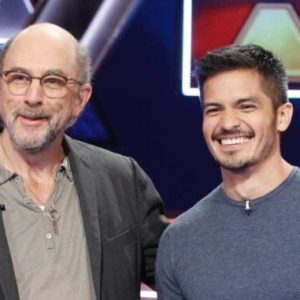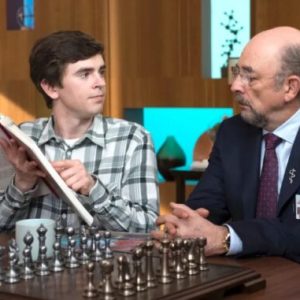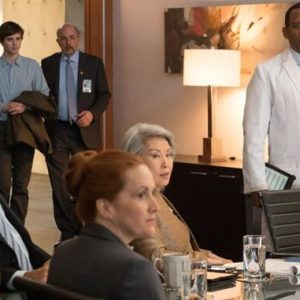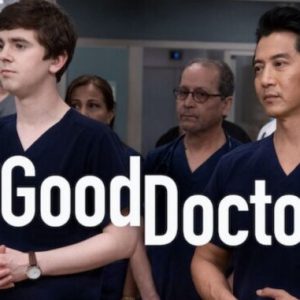In a medical drama often praised for its emotional complexity and groundbreaking representation, one character consistently delivers a quiet, anchoring presence—Dr. Aaron Glassman. Played with gravitas and gentle restraint by Emmy-winner Richard Schiff, Glassman is not just a mentor, or a surrogate father figure to Shaun Murphy. He is the series’ moral backbone—its soul.
From the pilot episode of The Good Doctor, Glassman’s role is established as one of profound importance. He’s the man who fought tooth and nail to give Shaun, a young autistic doctor with savant syndrome, a chance in a system designed to exclude him. While others doubted Shaun’s abilities or misunderstood his behavior, Glassman saw potential—more importantly, he saw humanity. That early faith sets the tone for the entire show and reveals something crucial about Glassman himself: he believes in people, sometimes even when they don’t believe in themselves.
But Glassman is not just defined by his relationship with Shaun. Over the seasons, viewers come to know him as a complex, multi-dimensional man shaped by both triumph and tragedy. A brilliant neurosurgeon and former hospital president, Glassman is also someone who has endured immeasurable loss. His daughter Maddie’s death casts a long shadow over his life, influencing his decisions, his outlook, and his vulnerabilities. It is this scar that allows viewers to understand him more intimately, and perhaps explains his deep, paternal investment in Shaun—an attempt at redemption, perhaps, but also a reflection of his enduring capacity to love.
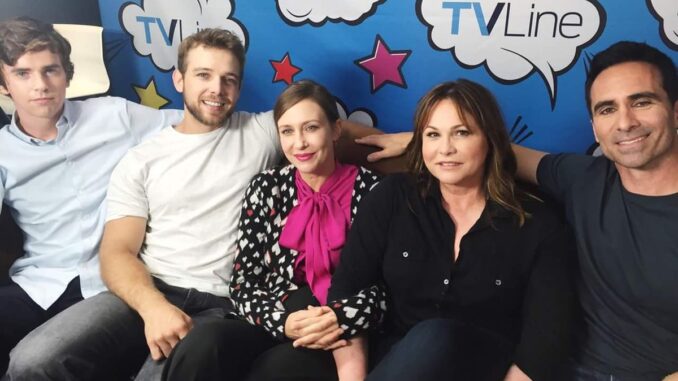
Richard Schiff brings a quiet power to the role, never overplaying the emotions but always making them felt. There’s a gravity to Glassman’s presence—a sense that behind every measured word is a man who has thought deeply, loved fiercely, and suffered greatly. He’s not always right, and he’s certainly not always gentle. His stubbornness and pride lead to tension with Shaun and other characters. But even in his most infuriating moments, he feels real: flawed, honest, and human.
Some of the show’s most powerful moments come not from the OR, but from Glassman’s personal journey. His cancer diagnosis in Season 2 is a turning point—not just for him, but for Shaun. Suddenly, the man who always had the answers is vulnerable. Watching him confront his own mortality is both painful and deeply moving. He fights to maintain independence while being faced with the terrifying prospect of becoming the one who needs care. Schiff handles these scenes with devastating nuance—showing a man afraid not just of dying, but of fading, of becoming irrelevant, of losing control.
Later in the series, Glassman’s health takes another emotional toll when signs of possible cognitive decline surface. For a man whose identity is tied to his intellect and expertise, the threat of losing his mental sharpness is even more frightening than the cancer. These moments highlight the cruel fragility of aging—how quickly strength can shift to weakness, and how identity can feel like it’s slipping away.
Yet, through all of it, Glassman’s emotional core remains solid. He evolves. He lets go. He softens. His bond with Shaun grows deeper—not because it becomes easier, but because it becomes earned. There are moments of heartbreaking conflict between them, but also moments of quiet reconciliation, mutual respect, and even love. Their relationship is never simple, but it’s always meaningful. Shaun often struggles to express affection or understand social nuance, but he consistently returns to Glassman—for advice, for comfort, for approval. And Glassman, in turn, remains Shaun’s fiercest advocate and most consistent emotional touchstone.
It’s also important to recognize that Glassman, while older and more experienced, is never painted as infallible. He’s allowed to grieve, make poor choices, lash out, and falter. That’s part of what makes his character so rich. Where many shows depict mentors as omniscient sages, The Good Doctor lets Glassman be human. He’s a widower trying to love again, a father who never got to say goodbye properly, a professional wrestling with relevance, and a man trying to figure out who he is when he’s no longer defined by his job title.
As the seasons progress, the question of Glassman’s role becomes even more poignant. Is he still needed? Has Shaun outgrown him? These are questions he wrestles with—quietly, painfully, and truthfully. And even as Shaun matures and gains confidence, the truth remains: Glassman’s presence is irreplaceable. Not because of his medical knowledge, but because of the wisdom, warmth, and reality he brings to every scene.
Schiff’s performance is never flashy, but that’s what makes it so compelling. He doesn’t seek attention—he commands it by simply being. He listens before speaking. He pauses where others rush. His silences are often more powerful than any monologue. It’s the kind of acting that makes you lean in, not because the character is loud, but because he feels true.
In a show filled with emotional highs and medical emergencies, Dr. Aaron Glassman provides the grounding force. He’s the man who reminds us that medicine is as much about understanding the soul as it is about healing the body. That mentorship is not about control, but about letting go at the right time. And that aging doesn’t have to mean fading away—it can also mean becoming more honest, more open, and more yourself than ever before.
